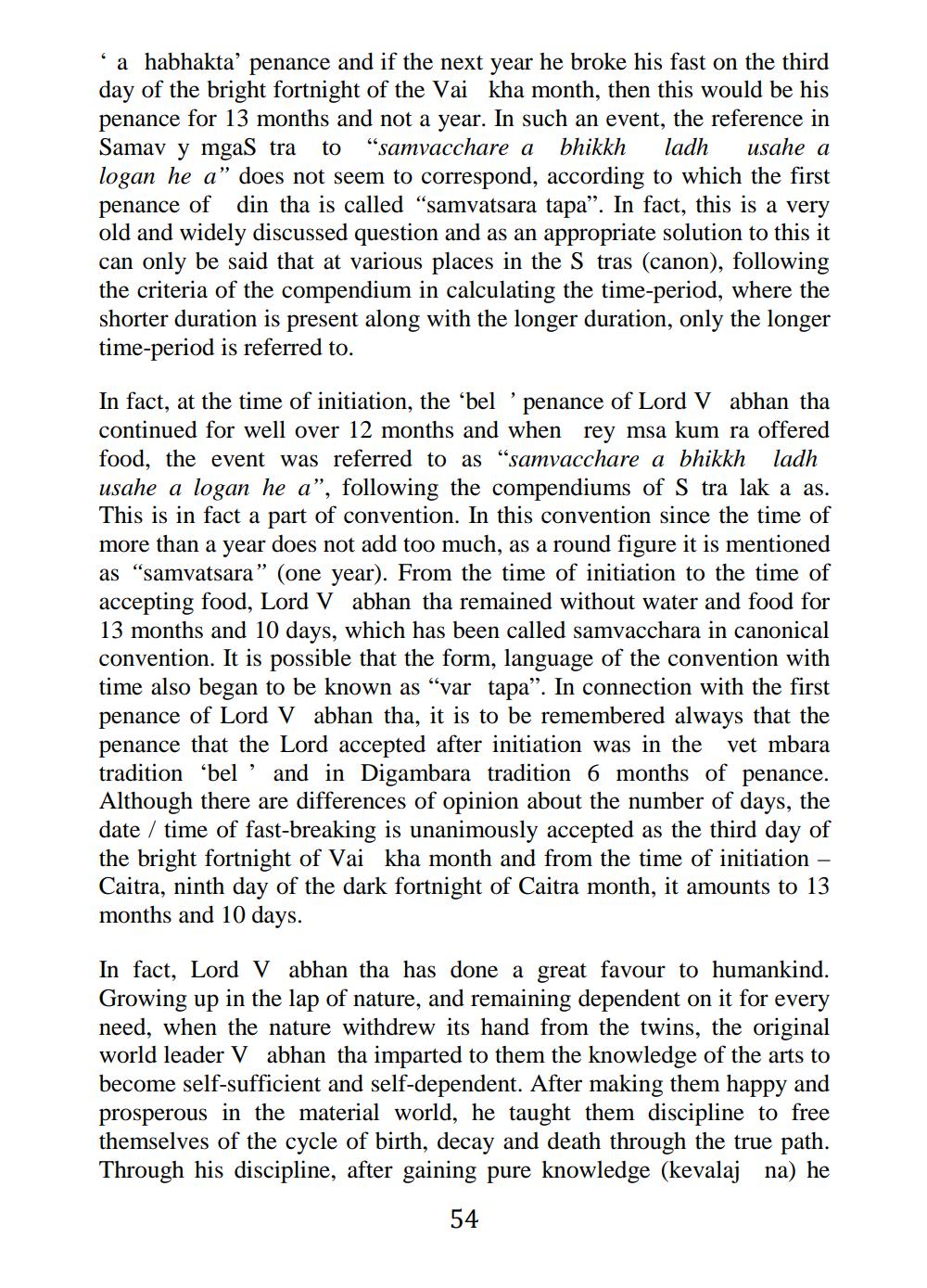________________
a habhakta' penance and if the next year he broke his fast on the third day of the bright fortnight of the Vai kha month, then this would be his penance for 13 months and not a year. In such an event, the reference in Samav y mgaS tra to “samvacchare a bhikkh ladh usahe a logan he a” does not seem to correspond, according to which the first penance of din tha is called "samvatsara tapa”. In fact, this is a very old and widely discussed question and as an appropriate solution to this it can only be said that at various places in the Stras (canon), following the criteria of the compendium in calculating the time-period, where the shorter duration is present along with the longer duration, only the longer time-period is referred to.
In fact, at the time of initiation, the 'bel 'penance of Lord V abhan tha continued for well over 12 months and when rey msa kum ra offered food, the event was referred to as "samvacchare a bhikkh ladh usahe a logan he a", following the compendiums of S tra lak a as. This is in fact a part of convention. In this convention since the time of more than a year does not add too much, as a round figure it is mentioned as "samvatsara” (one year). From the time of initiation to the time of accepting food, Lord V abhan tha remained without water and food for 13 months and 10 days, which has been called samvacchara in canonical convention. It is possible that the form, language of the convention with time also began to be known as "var tapa”. In connection with the first penance of Lord V abhan tha, it is to be remembered always that the penance that the Lord accepted after initiation was in the vet mbara tradition 'bel' and in Digambara tradition 6 months of penance. Although there are differences of opinion about the number of days, the date / time of fast-breaking is unanimously accepted as the third day of the bright fortnight of Vai kha month and from the time of initiation - Caitra, ninth day of the dark fortnight of Caitra month, it amounts to 13 months and 10 days.
In fact, Lord V abhan tha has done a great favour to humankind. Growing up in the lap of nature, and remaining dependent on it for every need, when the nature withdrew its hand from the twins, the original world leader V abhan tha imparted to them the knowledge of the arts to become self-sufficient and self-dependent. After making them happy and prosperous in the material world, he taught them discipline to free themselves of the cycle of birth, decay and death through the true path. Through his discipline, after gaining pure knowledge (kevalaj na) he
54




